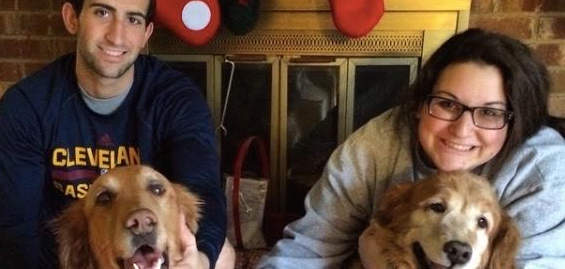Growing up, no matter how small my injury was, I always put a Band-Aid on it. There was just something about “proof of my injury” that seemed so interesting to me. Every Band-Aid told a different story, a different memory. Because of this, I always associated being injured with visual proof of an injury. I had no idea that there was such a thing called an invisible illness – that is, until I was diagnosed with one.
The summer before my senior year of high school, I suffered a foot injury that led to the diagnosis of a chronic pain condition known as Complex Regional Pain Syndrome (CRPS). This condition left me in constant pain, yet no one really could tell. There are no “bandages” to wear for CRPS – and unlike most other injuries, the only way to keep your pain down is to use it and work with it as much as possible. Rest and bandaging the injury only makes the pain worse.
You’d think that no proof of an illness would make my life easier; but it seemed to only make it harder. Not only do others often question whether or not my illness is real, I often find myself questioning it. It’s hard to comprehend something that isn’t there. For the first time in my life, I couldn’t put a bandage over my pain. The Band-Aid in some ways was my safety blanket- it told me no matter how painful things were, it would get better. The bandages always fixed my wounds. Unfortunately, a simple Band-Aid cannot fix my CRPS.
My CRPS does not just affect me; it affects my friends and family. They never know what to say to me, so it’s often easier to say nothing at all. And while I appreciate that they don’t want to say anything to hurt my feelings, I often wish they would just be there and support me. Other teens my age don’t realize what I am going through, so I’ve created a list of things that I’d like others to know about my invisible illness.
- Some days, I feel completely normal. But other days, I feel like my entire leg is going to burn off; which makes me unable to move, and I am forced to lay in bed all day with pain.
- Sometimes my whole life seems to be focused on my pain – if we are busy doing something, please do not ask me how I feel. I will tell you if I need to take a break. Asking me about my pain level breaks my distraction; which results in more pain.
- No, I have not read the latest treatment online, and no I do not want to hear about it. Living with an illness there is no cure for, often times I am left hopeless. I stopped researching different treatments online, and started to have full trust in my doctors. I listen and follow my doctor’s orders, not the World Wide Web.
- I might not feel up to hanging out today, but please don’t stop asking me to hang out. I promise you that one day I will feel good and want to have a friend to spend my “good day” with.
- Yes, I know I look completely normal. But yes, there is something wrong with me. I am not making it up.
- I would love to explain to you about what CRPS is. And yes, I am willing to answer any questions. If you are willing to listen, I am more than wiling to explain.
- I am on a lot of different medications which all require a good amount of sleep. If I go home early, it’s not because I wasn’t enjoying myself. Sleep is very important to my health.
- I put me first. Not to sound selfish – but my health comes before all things in my life. If I ever seem hesitant about something, do not try and persuade me. My body knows what I can handle.
- A hug or a simple “I hope you have a good day” text goes a long way. It means more than you will ever know.
- Even though I don’t say it enough, I thank you for all the love and support you give me. Without you, I know I wouldn’t be able to fight this battle. I am a stronger person because of your compassion and love.
For the past year, I have first hand learned what it is like to live with an invisible illness. I have learned that we never truly understand what others are going through and that the best way to show support for others is to show love and compassion for them. One day, I hope that invisible illnesses will be more commonly known about and understood. Because even though we may not be able to see the illness, it is still present and very real.
Editor’s note: For more information about our Pain Management program, or the Functional Independence Restoration Program, please call 844-876-2796. Other resources available on our patient and family resource page.







Thank you for this!!
So many people don’t believe what they can’t see. It is very hard on myself and my family and friends.